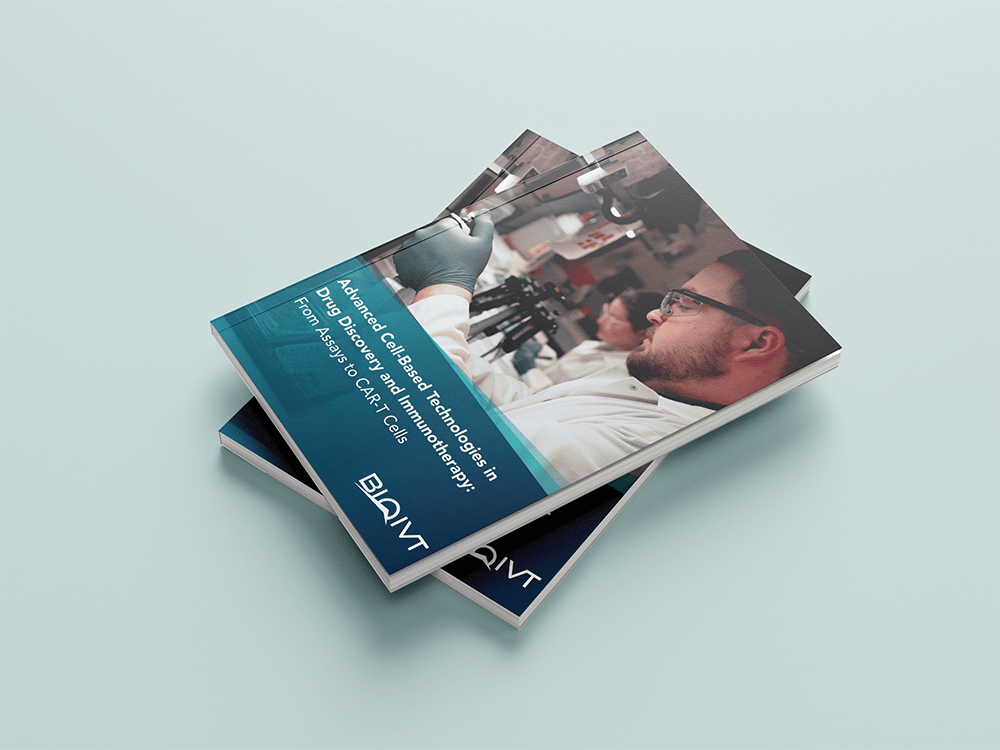- Biotech Snap
- Posts
- Daily Snap - 30. October 2025
Daily Snap - 30. October 2025

👉 Download the free eBook to explore where cell-based biotech is headed.
Good morning! Big news from us this week: Biotech Snap is joining the BIOCOM group, one of Europe’s most established biotech media companies. Don’t worry, nothing’s changing about your daily read — the format, tone, and focus will stay the same. What’s new is that we now have sister publications like European Biotechnology Magazine and transkript, which dive deeper into the stories shaping Europe’s biotech scene. Together, we’ll bring you even more value, from quick daily updates to in-depth features and industry insights.
👉 Read the full story on my blog to learn what this new chapter means for Biotech Snap and for you.
And most importantly, thank you for reading, sharing, and supporting Biotech Snap. Your trust and feedback are what make this newsletter worth writing every day.
Enjoy today’s read!
—Joachim E.
PRESENTED BY BIOIVT
Making sense of cell-based technologies: a deep dive
Cell-based biotech is both promising and complex. From the role of cell-based assays in drug discovery to the evolving landscape of CAR-T and tumor-infiltrating lymphocyte therapies, progress often raises as many questions as it answers.
A new eBook brings together key perspectives and examples that trace these developments, offering context on how researchers approach disease models, controls, and next-gen sequencing. For those tracking the science, it’s a clear-eyed look at where the field is now and where it could go next.
SNIPPETS
What’s happening in biotech today?
🪧 Myasthenia milestone: Kyverna Therapeutics reported encouraging phase 2 results for its CAR T-cell therapy KYV-101 in patients with generalized myasthenia gravis (gMG), showing deep, sustained symptom improvement after a single dose. Among six patients with moderate to severe gMG unresponsive to prior treatments, the three with 24-week follow-up showed an eight-point improvement on the MG-ADL scale, outperforming rival therapies. A 7.7-point drop was also observed on the QMG scale, exceeding competitor outcomes. Safety data showed manageable side effects, including mild to moderate cytokine release syndrome. Kyverna's CEO expressed optimism for phase 3 success, with 60 patients currently being enrolled for further evaluation.
🥅 Sjögren’s score: Novartis has reported positive late-stage trial results for ianalumab, its investigational monoclonal antibody for Sjögren’s syndrome, marking a potential breakthrough in a disease with no approved systemic treatments. In the phase 3 Neptunus-1 and Neptunus-2 studies, monthly 300 mg doses of ianalumab showed statistically significant reductions in disease activity, despite a notable placebo effect. Secondary outcomes showed symptom improvements in dryness, pain, and fatigue. Ianalumab demonstrated a favorable safety profile, supporting its potential as a multibillion-dollar therapy if regulatory approval is achieved.
⚠️ No path: GSK has officially ended its pursuit of cancer therapies targeting the CD226 axis, discontinuing its remaining phase 2 programs after earlier setbacks, including the costly failure of its anti-TIGIT antibody belrestotug. The company has now dropped nelistotug, an anti-CD96 antibody developed with iTeos and 23andMe, and GSK4381562, an anti-PVRIG antibody licensed from Surface Oncology, both aimed at enhancing immune response in solid tumors. Citing the need to focus on higher-potential assets, CEO Emma Walmsley emphasized strategic reprioritization. GSK also discontinued several infectious disease and early-stage programs, including a meningitis vaccine for infants and a cytomegalovirus vaccine, aligning with a broader R&D shift.
🤲 RA relief: Sonoma Biotherapeutics reported encouraging interim results from its phase 1 Regulate-RA trial evaluating SBT-77-7101 in patients with refractory rheumatoid arthritis (RA), a difficult-to-treat form of the disease. The first-in-human study showed a favorable safety profile with no dose-limiting toxicities, cytokine release syndrome, or neurotoxicity observed. Among six participants across two dose cohorts, 67% experienced a ≥50% reduction in swollen and tender joint counts by week 4, and 83% saw improvements in DAS28-CRP and CDAI scores. Higher-dose recipients showed more consistent responses, including one with durable benefit through week 24. Detection of CAR+ Tregs in synovial tissue and blood confirmed targeted activity.
🛡️Bio-Defense bucks: NATO has officially elevated biotechnology to a strategic defense priority, with plans to allocate up to €500 million annually starting in 2026 to fund biotech start-ups through its Defence Innovation Accelerator for the North Atlantic (DIANA). Secretary General Mark Rutte announced at NATO's first Biotechnology Conference that 28 biotech companies have already received funding, with future investments targeting dual-use technologies in human enhancement, telemedicine, military sensors, and diagnostics. This initiative responds to rising geopolitical competition from China and Russia in military biotech. NATO's approach emphasizes dual civilian-military applications, while parallel EU efforts support industrial biotech for supply chain resilience and sustainability.
SPEED READ
More news
Eli Lilly is partnering with Nvidia to build pharma's most powerful renewable-powered AI supercomputer to accelerate drug discovery, model development, and manufacturing innovation.
Armata Pharmaceuticals’ phage therapy AP-SA02 showed early effectiveness against Staphylococcus aureus bacteremia in a Phase IIa trial, offering hope against antibiotic-resistant infections.
Myrio Therapeutics is partnering with top U.S. research institutions to develop advanced T-cell therapies targeting solid tumors through novel CAR designs and immune-enhancing strategies.
Recursion, Roche, and Genentech unveiled a 46-million-image AI-powered microglia map to uncover novel neurodegenerative disease targets by predicting gene function at a genome-wide scale.
TOUR OPERATOR
Upcoming events
🇦🇹 Vienna, 3-5 November 2025 - BIO-Europe 2025
🇺🇸 Boston, 13-14 November, 2025 - Pharma Partnering Summit
🇦🇪 Dubai, 17-18 November, 2025 - World Biotechnology and Bioengineering Congress
🇫🇷 Paris, 24-25 November, 2025 - 2nd International Congress on Virology, Emerging Diseases and Vaccines
🇧🇪 Brussels, 4-5 December, 2025 - BIOVERSE Europe 2025
🇬🇧 London, 9-10 December, 2025 - SynbiTECH
🇺🇸 San Diego, 14-17 December, 2025 - Antibody Engineering & Therapeutics
🇺🇸 San Francisco, 10 January - Sachs Annual Oncology Innovation Forum
🇬🇧 London, 19 January - Bioseed
🇩🇪 Göttingen, 19 February - Life Science Start-up Day

